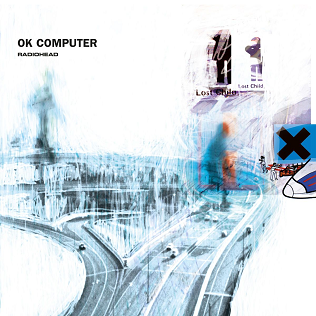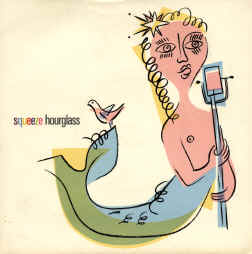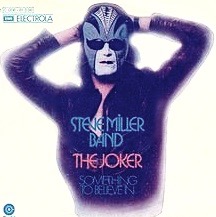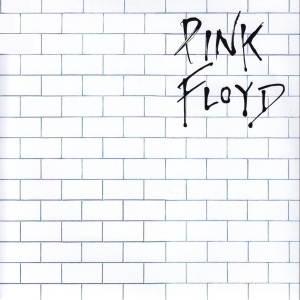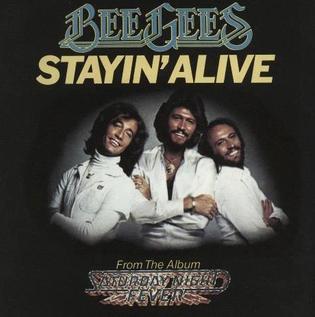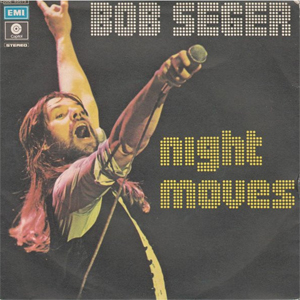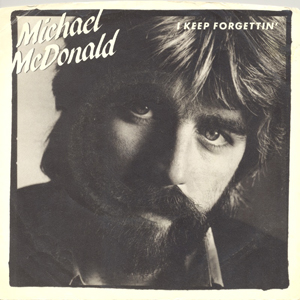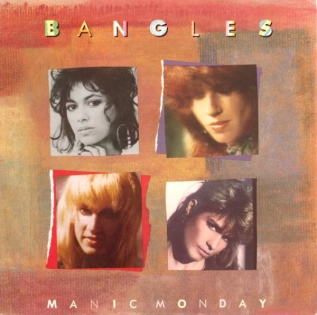Throughout the next however many months I’ll be counting down my 100 favorite albums, because why not. I’m up to number seventy-two.
When I was a senior in high school, I auditioned for Carnegie Mellon University’s Theater program with what in retrospect looked like a performance on The Gong Show – that 1970s television talent show hosted by a man who claimed to have been a CIA assassin where celebrities would strike a large gong to end particularly unbearable amateur performances. “Juicy” Jaye P. Morgan and Jamie Farr would have reached for that gong mallet to ensure someone destroyed my boyhood dreams and taught me the cold hard fact that life is not for the sensitive or the marginally talented.
I Laurence Oliviered a monologue from a source I no longer recall, and at my mother’s suggestion, I introduced a rubber rat as a prop for my musical selection: Michael Jackson’s “Ben.” Yes, a song about a rat, from a movie about a rat, performed to a black rubber rat the length of the bowel movement that my younger sister gifted to the world when she was four years old that so impressed our babysitter Molly that she called my parents, who were on vacation in Hong Kong, to describe it with more details than a typical Tinder profile, ruler still in hand. Thankfully, this was in the pre-camera phone days, lest a pic of a four-year-old’s discharge get mixed in the slideshow of Hong Kong vacation highlights that were shown to my parents’ friends. “Is that a vermin native to China?” they’d ask. “No, it’s my daughter’s feculence,” my dad would reply, using a more coarse term for feculence. The neighbor, Mr. Brown, would nod the way one does when admiring a masterpiece. “Nice work. Have you thought of entering her in a competition?” Anyway, it had teeth and a tail that was just as long. The rat, that is, not my sister’s business. I thought the inclusion of a rubber rat was a good idea, having seen the comedian Gallagher on television and how he won over audiences with his props, particularly the enduring bit where he took a large mallet to a watermelon and baptized the front row of his audience with sweet, sticky melon juice. In just a few minutes I had to face the horrible reality that I was no Gallagher, a feeling that crushed me like the aforementioned melon.
The confidence with which I entered the audition room left me halfway through the song’s second verse, when one of the judges interrupted with the weary resignation of someone who had seen too many rubber-rat-assisted performances that day, beginning with the kind of sigh usually reserved for terminal diagnosis deliveries. “I don’t suppose anything extraordinary is going to happen in the next two minutes?”
Nothing extraordinary happened. There’s a reason that guy gets to decide who can be in show business and who can’t. He knows his stuff.
I got accepted to attend Pittsburgh’s Carnegie Mellon; just not in their Theater department. In their Anything But Our Theater department. It was like being invited to a party but told to stay in the kitchen. My academics were marvy. My application essay was cool beans. However, my acting and singing were not at the level of an Andrea McArdle (the original Annie in the Broadway musical Annie) or Little Jimmy Osmond (of THE Osmonds, who at age nine had a hit on both sides of the Atlantic with a song that opened with “I’ll be your long haired lover from Liverpool” which is a weird thing for a nine-year-old from Utah to sing). My second choice school, Brandeis University, located in a suburb outside of Boston, didn’t have an audition requirement. I sang to the rat “Ben, something something, something air / You feel you’re not wanted anywhere.” And now, the rat sang to me “Glenn, that Pittsburgh school can kiss your ass / You will learn your trade in Waltham, Mass.” (That’s a joke, folks! I know that rubber rats don’t sing. Unlike real rats, who can belt out an aria that will bring tears to your eyes.) (That’s also a joke. A silly joke. I’m sorry about this run of silliness.)
It didn’t take long to realize I wasn’t cut out for theater – not because I lacked talent (though there was that), but because I lacked the backbone to face rejection after disheartening rejection. Getting turned down by Carnegie Mellon’s Theater Department was the determinative tenon in the sarcophagus. They wouldn’t take $50k from me (well, my parents) because they thought if word got out they’d trained me, their reputation would vanish faster than Lipps, Inc.’s recording career, and they’d end up as one of those sad stories – a once-prestigious university reduced to offering interpretive dance classes in an abandoned Woolworth’s. If they wouldn’t even let me pay to embarrass myself on their stage, community theater wasn’t exactly going to be breaking down my door with offers for me to play the title roles in King Lear or Ma Rainey’s Black Bottom.
Having breezed through a high school computer programming course, I switched my major to Computer Science. Over my four years in college, what started as neat, logical statements like “If X then Y” evolved into increasingly hostile computer languages that made as much sense to me as The Sound of Music winning the Oscar for Best Picture, which is to say, huh? (Extraneous, more so than usual, story: In mid-November 2000, when the US presidential election between Democratic candidate Al Gore and Republican George W. Bush remained undecided due to a contested Florida vote count, I attended a screening of The Sound of Music in Greenwich Village, New York. During the scene where the Von Trapp family wins a singing competition at the Salzburg Festival, someone in the movie theater shouted “I demand a recount!” I♥NY! I should have gotten that guy’s phone number.) Even as I pursued the degree, my heart wasn’t in it. Upon graduation, I halfheartedly applied for programming jobs while pursuing my true passion: positions at record companies. Most computer-related positions were in Defense, and as a pacifist, that wasn’t my path. Cue my dad saying “Well, somebody’s gotta do it!” Sure, Dad, but should it be the guy who thought “What if I sing TO the rubber rat instead of just holding it?” More importantly, such a job would indubitably crush my soul.
Thanks to a summer temp job in Accounts Receivable at a furniture leasing company, I landed a similar position at CBS Records. When I told my mother I got the job, she responded with an enthusiastic and supportive “I guess you can do that while you keep looking for a computer-related job.” Because obviously, working at a record company was just a stepping stone to the real dream of playing a small part in the destruction of foreign lands. The subtext was clear: the CBS gig was less a career starter and more a temporary detour on the highway to Serious Professional Accomplishment. The way she said this was similar in tone to ten years earlier when she yelled from her bedroom “Glenn, what are you doing?” when I was clearly working on my Carol Channing impression. It wasn’t THAT bad! She knew full well what I was doing. Another dream dashed. #GoodbyeDolly
The only happy memory I have of prior to then was of that singular moment in second grade when Mrs. Halpern praised my essay on prison reform. While my peers were presumably writing about dinosaurs or Scooby Doo or spaghetti, I was crafting a treatise on human decency. I wrote about how the conditions of jail cells were deplorable and no place for actual rehabilitation to take place and about treating inmates humanely, arguing that everyone deserves dignity – a perspective that, looking back, seems remarkably developed for a seven-year-old and certainly didn’t come from my family or the evening news.
My personal experiences and observations made me perceive the world as uncaring if not downright cruel. I found something to care about when I was ten years old. Grandpa Abe regifted me the radio given to him by the bank as his reward for opening a new account with them (a common practice in the 1970s, when banks wooed new customers with treasures like radios and bathroom scales and electric blankets and belt buckles emblazoned with “Wells Fargo”). The radio was a brown box, roughly the dimensions of five stacked rubber rats (minus their tails), with the AM and FM band displays at the top and a fabric-covered speaker comprising its lower two-thirds. Two plastic knobs protruded from its right side like a minimalist Mr. Potato Head design – one volume ear and one tuning nose, as if Picasso had designed it exclusively for Wells Fargo after they informed him his checking account had fallen below the minimum balance requirement. I’m fairly certain that in handing over to me this free no-frills appliance, my grandpa wasn’t aware that he was passing along my primary emotional survival kit, though from that spring day in 1974 when WABC first crackled through the speaker in my bedroom sanctuary, music became my escape hatch from the perpetual disappointment that was life. I very soon began my record collection and would turn to those records when I needed a companion.
When Albert Wunch dropped me as a friend because I didn’t vote for him for sixth grade student council president (I felt he lacked the leadership skills to unite our class) and lashed out at me with “Where did you get your watch – a junkyard?” (nobody insults their constituents and wins the presidency, Albert!), I took solace in the Diana Ross Greatest Hits album that my parents gave me for Hanukkah, at my request. In my bedroom, with its black wood paneling and golden shag carpet, I carefully removed the album from its sleeve, holding it on its perimeter, and placed it on the record player. I flipped the “on” switch, set the speed to 33, and gently placed the needle on the opening groove. “Touch me in the mo-orning….” I immediately lifted the needle. I have an issue with that song, which is: who laughs at wind? “Wasn’t it yesterday we used to laugh at the wind behind us?” Diana sings in the second verse, as if she and her lover were meteorology enthusiasts who found low-pressure systems hilarious. Next track, please. “Love Hangover” – now that’s a certified banger. Side A concludes with the sublime “Theme From Mahogany.” I flip the record over and BOOM! “Ain’t No Mountain High Enough” lifts me up like a melodic brassiere. It filled/fills me with the unshakeable belief that Diana Ross would, indeed, be there in a hurry if I called her name – though I never tested this theory, because some illusions are better left unshattered. (Thirty years later I saw Miss Ross entering the food court at the mall in Century City as I was leaving it. We caught each other’s eyes and she flashed me a huge smile that said “I still mean what I said.”)
Since childhood, shyness was/is my albatross. Much like my Lenovo PC, I have a tendency to freeze at the most inopportune moments, like during what others refer to as “normal human interactions.” Back at school, my obsession with music and the Billboard charts was less a conversation starter and more a classmate repellent. While my peers discussed Little League and Mad magazine and Raquel Welch, I was bursting to share that on the flip side of Elton John’s “Philadelphia Freedom” was a live cover of The Beatles’ “I Saw Her Standing There” performed with John Lennon – the same Lennon who, on Elton’s previous single, a cover of The Beatles’ “Lucy in the Sky with Diamonds,” performed under the pseudonym Dr. Winston O’Boogie! Riveting, right? Yet for some crazy reason these boys on the verge of adolescence preferred discussing Raquel Welch‘s boobies. “Clod-polls!” I thought to myself. Looking back, mentally categorizing peers as simpletons might have contributed to my social isolation, so I must shoulder some of the blame.
Yet, amidst my inadvertent self-imposed musical exile, Nicole Winston actually tried to connect with me through my love of music. In eighth grade told me of a song she thought I’d love by Seals & Crofts, a long-haired, bearded soft rock duo that in the 1970s conferred on an unsuspecting public such wussy hits as “Summer Breeze” and “Diamond Girl” and “Hummingbird.” Having me to listen to their music should be punishable as a hate crime, though Nicole had the best of intentions. She picked up on my sensitivity and non-participation in athletic activities and disinterest in Raquel Welch and assumed I was a flaming mellow music fan. I preferred things that were a bit more rocking, like Eagles, Electric Light Orchestra and Barry Manilow, always throwing up the devil horns hand gesture when I heard “It’s a Miracle” or “Daybreak.” She said the Seals & Crofts song was called “Babe in the Woods” and it was about a deer and as I’m recalling this I’m throwing up in my mouth a little and doing my utmost to keep my building rage from flying out of control and wondering what impression I give off that would impel someone to recommend such a sickening vile song to me when I go wild and headbang to “New Kid in Town.” I didn’t even give the offensive song a listen. The fact that I’ve carried this memory for 45 years, only to discover through an internet search while writing this paragraph that Seals & Crofts never even recorded a song called “Babe in the Woods” or anything about a deer, feels like a perfect metaphor for my less-than-idyllic teenage years. I lost a potential colleague in my musical passions because she didn’t meet my standard of exclusively supporting artists who truly rock. Like Barry Manilow. (Years later, I negotiated deals to have Seals & Crofts’ hits be included on compilation CDs with titles like NOW! That’s What My Dentist Plays: Volume 37. Both men were a pleasure to work with and I forgive them for “Summer Breeze” and “Diamond Girl.” Not “Hummingbird,” though.)
Fast forward a few decades to the rise of social media and adult Glenn still trying to use music to make a connection, hoping the broader reach of this new technology would help with that. I used to post music-related tidbits on Facebook, such as commemorating an artist’s birthday by posting a clip of them, until a fellow writing workshop student, auditioning for the role of Buzz Killington, informed me that nobody cares. “That’s not what Facebook is for!” she scolded. True enough, nobody besides me posted the video of Nu Shooz’s “I Can’t Wait” on the birthday of their lead singer, the unforgettable Valerie Day. What others post generally falls under one of the following categories:
– Documenting their food intake via photographs. I’m not sure why. Is the plan to years from now reminisce? “I’m so glad I posted a pic of the fruit and feta salad I ate at the Heritage Towne Center with whatshisface. Otherwise, I may have completely forgotten about it. #MistyWatermelonMemories” Or is it to make me jealous because my meals come from a box and are eaten alone?
– Similar to that last one, the wine o’clock news. Every glass, meticulously catalogued like rare butterflies before they’re imbibed. I’m puzzled. Will future historians need to know exactly when Sharyn switched from merlot to pinot grigio?
– Announcing their kid made the honor roll. Yes, be proud! Take little Einstein out for some ice cream. They’re brilliant and I’m thrilled to be leaving the world in their hands, but some perspective here. You know how many kids make the honor roll each year? Around 19 million. You know how many people own a mint condition original Japanese pressing of ABBA’s Super Trouper with an intact obi strip? < 19 million. And yet more people post about the former, conforming to what’s expected of them. Post when your second grader writes an essay about prison reform.
– Wishing a happy birthday to their significant other. Do you not live with this person? Are you no longer on speaking terms? Did you forget their birthday until now? Do you think a no-cost post that reads “Happy birthday to my beloved who is currently sitting next to me and asking me why I’m typing this instead of just saying it out loud” will make up for that? Give them a gift, like a spa vacation or theater tickets or a mint condition original Japanese pressing of ABBA’s Super Trouper with an intact obi strip, you cheap, forgetful offspring-of-a-bitch-and-stud. #GenderNeutralPejorative #StillHeteronormativeThough
– Announcing the death of a relative. I genuinely feel for these people, but is there a more thoughtful and respectful place to honor their memory than between a photo of a breakfast burrito and a video of a cat playing tennis? I had a lump in my throat and a tear forming until I saw Dolly Purrton’s forehand groundstroke. Ha ha! #IsThisFurReal?
– Selfies. And only selfies. A daily documentary of one’s face from slightly different angles. Ain’t ya got a mirror? I give a pass to those with biceps and defined abs. Keep up the good work, boys!
Interestingly, on Instagram I found a very large community of people who post items from their record collections. More interestingly, gay men make up exactly 99.2% of those people. You could say they’re into aural! #SorryNotSorry. And while my Kylie Minogue fervor may not be as strong as theirs, I get the bigger picture.
Many of us who fall outside the mainstream use music to escape a world that ravages us with homophobia, transphobia, xenophobia, racism, misogyny, religious persecution, famine, poverty, war, human rights abuses, weather-related disasters, gun violence, genocide, corruption, human trafficking, terrorism, and Paul Blart: Mall Cop 2. I resist engaging with a world where greed prevails, where doing the right thing is not as important as the profit margin. Yes, I’m looking at you, Lenovo Corporation. My Lenovo is a subpar computer, but it would make a good boyfriend, given how often it goes down on me. #SorryNotSorry2. Worst of all, we live in a world where The Recording Academy gives the Song of the Year Grammy to “Don’t Worry, Be Happy” over “Fast Car.” Okay, maybe that isn’t worse than genocide, but it’s damn close. Okay, maybe it isn’t damn close, but it still pisses me off.
Unfortunately, the escape music provides me lasts only as long as I’m listening. It doesn’t permanently alter reality. Listening to a stack of Ray Charles records doesn’t change the results of the 2024 US presidential election, where a majority of the voters said “I WANT A CONVICTED RAPIST WHO STOLE DONATIONS MADE TO A CANCER CHARITY TO RUN THE COUNTRY! HE SHARES MY VALUES!” No record would fix that, though a great one can make me feel like I’m not alone in my revulsion of the state of affairs, that somewhere out there are people who share my values and my interests.
Radiohead’s OK Computer is one such album. It captures the disconnect of a society where technology, meant to connect us, often leaves us feeling isolated (see “Facebook, Glenn’s posts on”). The themes of detachment, corporate dreariness, and seeking escape reflect my own journey, from spending my school days feeling like a porcupine at a massage parlor to discovering release through music. Released in 1997, its observations on modern life may strike a more profound chord today. To me, it’s as if Radiohead hopped on a TMZ double decker bus to take a guided tour of my brain: they entered through my prefrontal cortex, where a robotic voice not too dissimilar to the one in Styx’s “Mr. Roboto” instructed them to please power off their devices (Am I the first to mention Radiohead and Styx in the same sentence? Is “Mr. Roboto” now playing in your brain as it constantly plays in mine? Domo arigato.); wandered through my hippocampus, covered in posters of Olivia Newton-John and bearing the strong scent of York Peppermint Patties, making it far more enchanting than the sterile computer labs of the Brandeis campus; stopped at my temporal lobe, where they found a confused mess of career expectations colliding with artistic dreams – an unholy mix of model rockets, a briefcase, and more posters of Olivia Newton-John; paused for a quick lunch at Ye Olde Hypothalamus Café, where they devoured a microwaved mac-and-cheese that, ignoring Mr. Roboto’s instructions, they photographed and posted on Facebook (being British, they had never tasted something so flavorful and exotic); and finally reached my amygdala, where they discovered enough alienation and technological dread to inspire the OK Computer album and its deluxe expanded version, released twenty years later. I should sue.
The narrator of the song “Paranoid Android,” who is disgusted by the lack of empathy and humanity around him? That sounds so much like yours truly that I think I’ll add that title to my email signature: “Yours in revulsion, Glenn Schwartz, Writer/Licensing Consultant/Paranoid Android/Record Collector/Owner Of Many Olivia Newton-John Posters.” At the risk of sounding callous, I simply cannot put myself in the shoes of someone who lacks empathy.
The protagonist of “Subterranean Homesick Alien,” who, feeling out of place in this world, dreams of an alien abduction, hoping they’ll take him aboard their ship and “show me the world as I’d love to see it?” That is so me, except for the part about wanting to be abducted and taken aboard a spaceship, as with my luck I’ll be stuck in the middle seat between a guy who removed his shoes and socks before takeoff (that’s not what “takeoff” means, you jackal!) and someone who gives me a play-by-play of her Aunt Tillie’s gall bladder surgery during the safety demonstration, causing me to miss the instructions about the quantum-lock seatbelts and anti-gravity emergency procedures and how to operate the fifth-dimensional oxygen mask. All I heard was “smoking of any substance, including Zorpian plasma-vapor, is strictly prohibited.” Hard to believe that was ever allowed. This is not the world as I’d love to see it! Flight attendant, is it too late to get bumped up to Business Class? It is? Now Tillie’s niece is telling me how rude I am. “You could be a little cordial, as we’re going to be stuck next to each other for the next 6000 hours! Anyway, when they cut Aunt Tillie open, it was like popping a zit the size of a grapefruit. All this chunky yellow gunk oozed out. Is there food on this flight?” #ISuckAtMakingFriends
Then there’s “Exit Music (For A Film),” written for the closing credits of Baz Luhrman’s Romeo + Juliet. Do I relate to the star-crossed loverboy’s point of view as he plans his escape from an oppressive society? Does a polar bear shit on an ice floe?
I very much identify with the narrator of “Let Down,” who finds life monotonous, disappointing, and, well, a letdown. I was let down by the judges at my college theater audition, let down by the lack of support when I landed my dream music business job, and, of course, let down by Lenovo, who, once they have your money, treat you like a rubber rat prop – something that has served its purpose and now can be ignored and dismissed.
The protagonist of “Karma Police” requests that the titular law enforcement “arrest this girl; her Hitler hairdo is making me feel ill.” Imagine if karma police actually existed, rounding up those who make others’ lives miserable – offenders with appalling hair choices, barefoot airline passengers, billionaire social media overlords who wouldn’t know empathy if it sent them a friend request, the current administration, Lenovo executives, and the jackals ensuring Seals & Crofts’ continued relevance through compilation licenses (though I suppose that last offense only warrants a warning).
On “Fitter, Happier,” a robot that sounds markedly different than the one in “Mr. Roboto” dictates the proper way for humans to live: drinking in moderation, hitting the gym three days a week (Glenn: ha!), no microwave dinners (Glenn: ha ha!), no saturated fats (Glenn: ha ha ha! This machine’s a real Gallagher!). Thom Yorke, Radiohead’s lead singer/chief lyricist, called “Fitter, Happier” “the most upsetting thing I’ve ever written,” which proves he’s never had to write to Lenovo’s customer service about a computer that is such a colossal piece of crap that my former babysitter Molly took pictures of it to send to my parents.
My favorite song on OK Computer and indeed my favorite song in the Radiohead oeuvre is “No Surprises,” a suicide note disguised as a children’s lullaby. The narrator, trapped in an unfulfilling life, speaks of “a job that slowly kills you” and “bruises that won’t heal.” He looks in the mirror and sees someone tired and unhappy. He questions why a democratic government serves only the privileged few. All he wants is “no alarms and no surprises,” letting us know that “this is my final fit, my final bellyache.” The song poses a question I think about more often than I’d like: when does merely existing become too heavy a burden to bear? The real power of “No Surprises” is how it makes me feel less alone in asking that question. There are others like me out there; I just have to find them, with or without the help of technology. I hate to think about what might have been had I pursued one of those Defense jobs. #NotEveryParagraphHasAPunchLine
Closing OK Computer is “The Tourist,” a song about taking the time to enjoy life in a world moving too fast. “Idiot, slow down, slow down” implores Thom Yorke. Great advice, lest I become like my Lenovo pc, teetering on the verge of a complete breakdown at any given moment, though unlike my less than ok computer, I know where to find my reset button: my record collection.
OK Computer bridged my abandoned computer science path with my innate sensitivity to human suffering, easing my loneliness by demonstrating that someone else viewed the world similarly, questioned where we were heading, and felt the tension between society’s expectations and remaining true to one’s self. In its tales of darkness, I found light; in its characters’ despair, I found hope; in between my couch cushions, I found 27 cents, which I took to my local independent record store and put toward the purchase of some new vinyl because, unlike Amazon, this store still accepts loose change and its clerks engage in actual conversation with fellow music enthusiasts. This is what Radiohead had been telling us all along: no algorithm can replace the joy of genuine human connection. The relevance of this message has only grown stronger over time.
The music that accompanies the lyrics reflects the idea that one needn’t conform. The spirit of experimentation on the record – distorted vocals, shifting time signatures, computerized voices, abrupt structural shifts, layers of electronic samples – breaks free of the boundaries of what a rock band is supposed to sound like. The band and their producer, Nigel Godrich, revel in the sonic possibilities of modern technology, while singer Yorke expresses an opposition to technology’s potential social, moral, and psychological impact. I’d wager TWICE the amount of money I found in my couch cushions that right now your brain is invoking the philosophical precepts of poet and teacher Eli Siegel, who posited that the quintessence of art lies in the dialectical synthesis of opposing forces, and therefore, one might assert that OK Computer achieves an exalted aesthetic status, wherein dissonance and melody, fragmentation and cohesion, despair and transcendence—even a vocalist decrying technology while enmeshed in its sonic landscape—coalesce into an indelible auditory manifestation of artistic profundity. To take this idea further, the preceding sentence is simultaneously terrible and meaningful, which means it is art, as art contains opposing elements, unless it is meaningfully terrible, in which case it transcends art entirely and becomes a Seals & Crofts song. I trust you’re following this logic, for this will be on the final exam.
That the album sounded like nothing else on the radio, nor like Radiohead’s prior album, The Bends, or “Creep,” the breakthrough hit off the band’s first album, caused concern at their record label. Deeming the album uncommercial and difficult to market, the band’s record label reduced their sales estimates. Much like the 21-year-old who defied what was expected of him and began a long and fruitful career in the music industry, Radiohead defied the doubters about their third album’s commercial appeal. OK Computer became the band’s biggest success, topping the UK Albums Chart and selling over 7.8 million copies worldwide. It won the Grammy for Best Alternative Music Album, was nominated for Album of the Year, and has repeatedly been recognized in polls of music critics as one of the greatest albums of all time. In 2014, the US Library of Congress inducted it into the National Recording Registry for its cultural, historical, and aesthetic significance. Most significantly, The Sixth Sense actor Haley Joel Osment loves it.
The suits at Radiohead’s record label were like the judge at my Carnegie Mellon audition who said to me “I don’t suppose anything extraordinary is going to happen in the next two minutes.” Just because someone’s in a certain role doesn’t mean they know greatness when they see or hear it. Their goal is to keep the status quo. That needn’t be your goal. They can’t tell you what you can or cannot do. Live your life. Live it with integrity. And if those gatekeepers block you, tell the karma police to arrest them.
Follow Tunes Du Jour on Facebook
Follow me on Bluesky
Follow me on Instagram
